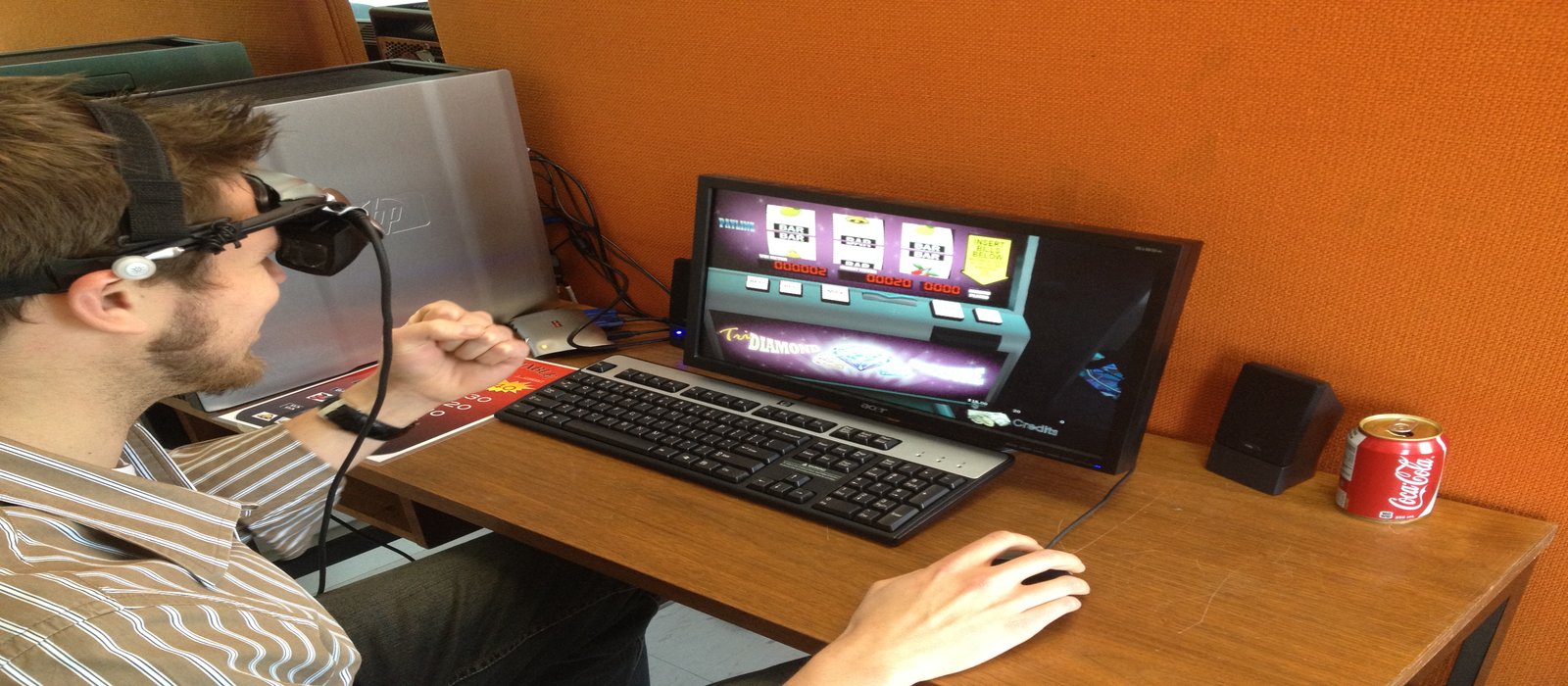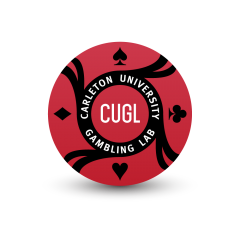At the heart of the research conducted in this lab is a desire to understand the causes of gambling addiction and means to facilitate responsible gambling. Topics of interest include craving, erroneous cognition/non-rational thought, responsible gambling (e.g., assessment of tools that facilitate limit setting and adherence), stress and coping responses, and barriers to behavioural change. This research takes place in the Carleton University Gambling Laboratory (CUGL), which is complete with slot machines, a black jack table, and a virtual reality casino.
Below, you will find a video my lab helped produce for Ontario Lottery and Gaming. The “Slot Machine: What Every Player Needs to Know” educational video is now a widely used animation that addresses erroneous cognitions relating to sampling with replacement and provides strategies for helping slot players to stay within their monetary limits.
More recently, we have examined factors that hinder as well as facilitate behavioural change (self-help, professional care). Central to this line of research is nostalgic revere for the pre-addicted self. We have found (Kim & Wohl, 2015) that nostalgia (measured or manipulated) heightens readiness to change. We are in the midst of studying why nostalgia motivates change as well as the limits and boundaries of this effect.
For information about knowledge translation and exchange (KTE) activities related to the gambling research produced by CUGL, we invite you to look at the Gambling Research and Training (GREaT) Hub page.
Selected (Recent) Publications
Hollingshead, S.J., Amar, M., Santesso, D., & Wohl, M.J.A. (2019). When should players be taught to gamble responsibly? Timing of educational information alters limit setting intentions. Addiction Research & Theory, 27, 507-514. doi: 10.1080/16066359.2018.1555818
Wohl, M.J.A., Tabri, N., & Zelenski, J.M. (2019). The need for open science practices and well-conducted replications in the field of gambling studies. International Gambling Studies, 19, 369-376. doi: 10.1080/14459795.2019.1672769
Salmon, M., Kim, H.S., & Wohl, M.J.A. (2018). In the mindset for change: Self-reported quit attempts are a product of discontinuity-induced nostalgia and incremental beliefs. Journal of Social and Clinical Psychology, 37, 405-430. doi: 10.1521/jscp.2018.37.6.405
Wohl, M.J.A. (2018). Loyalty programs in the gambling industry: Potentials for harm and possibilities for harm minimization. International Gambling Studies, 8, 495-511. doi 10.1080-14459795.2018.1480649
Wohl, M.J.A., Kim, H.S., Salmon, M., Santesso, D., Wildschut, T., & Sedikides, C. (2018). Discontinuity-induced nostalgia improves the odds of a self-reported quit attempt among people living with addiction. Journal of Experimental Social Psychology, 75, 83-94. doi: 10.1016/j.jesp.2017.11.011
Kim, H.S., Hollingshead, S.J., & Wohl, M.J.A. (2017). Who spends money to play for free? Identifying who makes micro-transactions on social casino games (and why). Journal of Gambling Studies, 33, 525-538. doi: 100.1007/s10899-016-9626-6
Wohl, M. J. A., Salmon, M., Hollingshead, S. J., & Kim, H. S. (2017). An examination of the relationship between social casino gaming and gambling: The bad, the ugly, and the potentially good. Journal of Gambling Issues, 35, 1-23. doi: 10.4309/jgi.2017.35.4
Wood, R. T. A., Wohl, M. J. A., Tabri, N., & Philander, K. (2017). Measuring responsible gambling amongst consumers: Development of the Positive Play Scale. Frontiers in Psychology, 8, 227. doi:10.3389/fpsyg.2017.00227
Tabri, N., Wohl, M. J. A., Eddy, K. T., & Thomas, J. J. (2017). Me, myself, and money: Having a financially focused self-concept and its consequences for disordered gambling. International Gambling Studies, 17, 30-50. doi:10.1080/14459795.2016.1252414
Kim, H. S., & Wohl, M. J. A. (2015). The bright side of self-discontinuity: Feeling disconnected with the past self increases readiness to change addictive behaviors (via Nostalgia). Social Psychology and Personality Psychology Science, 6, 229-237. doi:10.1177/1948550614549482

